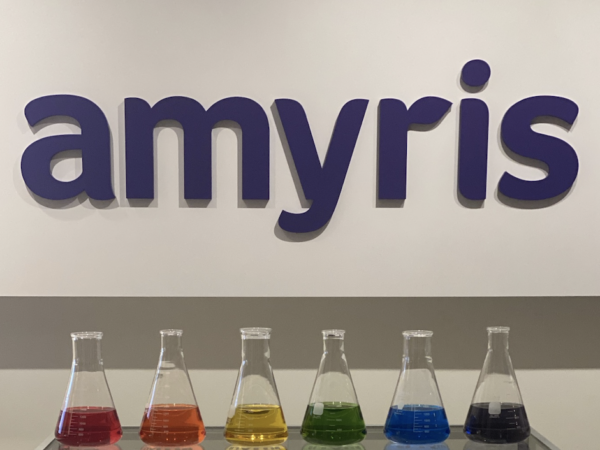
2023 Pride: “Peace, Love and Revolution”
learn more
We celebrate Disability Pride Month in July because it’s the anniversary of the Americans with Disabilities Act, landmark legislation that prohibits discrimination based on disability. While the law goes a long way to helping remove barriers, we know there’s still work to do.
We asked three Amyrisians to share their stories with us so we can honor and understand their unique experiences.
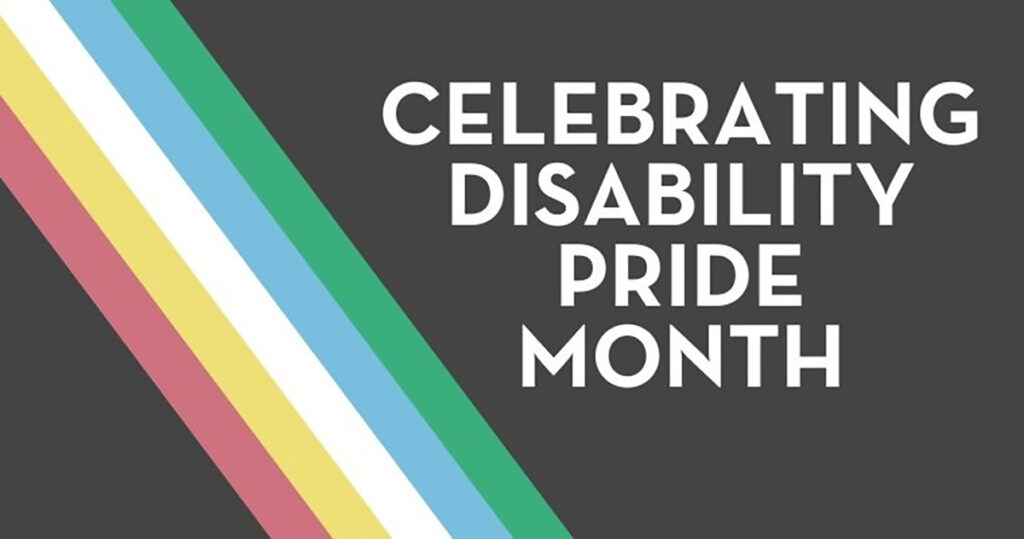
Can you share your personal journey and how it has shaped your perspective on living with a disability?
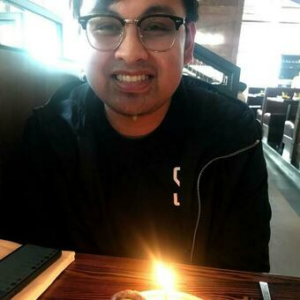 Daryll London (DL), People Operations Specialist: Long story short, I was left with a spinal cord injury following a wrong-way highway accident in 2019. I’ve lost function below my chest ever since, so I needed to relearn how to perform basic actions like sitting up and getting into/out of bed.
Daryll London (DL), People Operations Specialist: Long story short, I was left with a spinal cord injury following a wrong-way highway accident in 2019. I’ve lost function below my chest ever since, so I needed to relearn how to perform basic actions like sitting up and getting into/out of bed.
While there’s still a long road ahead on my journey to full independence, I never forget how accomplishing everyday tasks seemed impossible immediately after the injury. I take pride in the progress I’ve made so far, and it’s made me more empathetic to the everyday challenges of others, disabled or not.
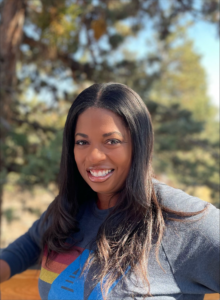 Candace Pringle (CP), Business Support Manager: Honestly, I’d never acknowledged my conditions as a disability until a few years ago when I learned about invisible disabilities. An invisible disability is a “physical, mental or neurological condition that limits a person’s movements, senses or activities that’s invisible to the onlooker.”
Candace Pringle (CP), Business Support Manager: Honestly, I’d never acknowledged my conditions as a disability until a few years ago when I learned about invisible disabilities. An invisible disability is a “physical, mental or neurological condition that limits a person’s movements, senses or activities that’s invisible to the onlooker.”
Learning that the autoimmune diseases I’ve struggled with for half my life were considered disabilities validated the many obstacles I’ve had to overcome in life. I’ve spent many hours frustrated with myself when I could not participate in certain activities and/or work streams due to complications from my disability. Hearing that I was not alone and there was support and protection was truly encouraging.
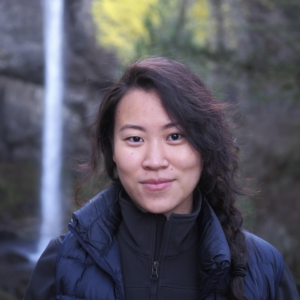 Catherine Wang (CW), Manager, Retail Marketing: Since being diagnosed with Rheumatoid Arthritis 3 years ago, I’ve had to make significant lifestyle changes—perhaps the biggest challenge of all is to ask for help more often. I take a lot of pride in being independent, so it’s been an adjustment to lean on others for simple things, such as opening a bottle of water or picking up a heavy package. I found it to be quite embarrassing at first, hesitating whether I should provide the context of my autoimmune condition or not, but now I see it as a great way to ease into a broader conversation around health and wellbeing.
Catherine Wang (CW), Manager, Retail Marketing: Since being diagnosed with Rheumatoid Arthritis 3 years ago, I’ve had to make significant lifestyle changes—perhaps the biggest challenge of all is to ask for help more often. I take a lot of pride in being independent, so it’s been an adjustment to lean on others for simple things, such as opening a bottle of water or picking up a heavy package. I found it to be quite embarrassing at first, hesitating whether I should provide the context of my autoimmune condition or not, but now I see it as a great way to ease into a broader conversation around health and wellbeing.
What are some common misconceptions or stereotypes about disabilities that you would like to dispel?
DL: I think it’s easy to forget that individuals with the same disabilities can go through very different struggles. Using spinal cord injuries as an example, the vertebrae injured along your spine largely determines which of your functions are impacted; higher injuries on the spinal cord result in more dysfunction, inversely lower injuries results in more functionality but can still be classified as paraplegic. This results in those with spinal cord injuries facing a wide range of obstacles that they must overcome, and there’s no universal solution to address them all.
CP: One of my autoimmune diseases requires a restrictive diet due to risk of damaging my small intestines and to manage inflammation. It’s routinely assumed that I’m “dieting” when others hear about my dietary restrictions. I’ve even been told by a previous employer during a catered conference: “We are not here to cater to every ‘fad’ diet everyone’s on.”
That is only one example of many. I encourage everyone to never assume why someone is eating a certain way but to support them if it is in your ability to.
CW: Previously, I fell into the camp of people that expect to see visible disabilities. Now that I’m experiencing an invisible disability, I’ve learned not to assume anything about other people’s health conditions. With Rheumatoid Arthritis specifically, it’s common for people to associate arthritis as a wear-and-tear condition with an elder age group, but RA is actually an autoimmune disorder that can affect people of all ages.
What are some of the challenges you have faced in the workplace, and how have you overcome them?
DL: I can’t say I’ve experienced any major challenges working at Amyris after my accident. I’m grateful that Amyris was very willing to understand the circumstances of my injury and work on ways for me to continue working here in spite of it. The fact that my work can be done remotely is a major advantage, enabling me to immediately take care of any injury-related issues that arise. Other than that, my team has always been accommodating to my schedule and needs regarding re-occurring doctor visits.
CP: Outside of the food challenges I mention above all of my employers have been extremely supportive.
CW: Luckily, I started experiencing symptoms during the pandemic, so I was already working from home. I can’t imagine having to commute before I began treatment that helped ease the join pain. For my role, I am usually on the computer at my desk. In some instances that I need to travel, I pack as light as I can, plan out ample time get from place to place, and ask for help when I need to. If there’s an event that requires heavy lifting, I communicate with my team in advance that I will have limitations in that area.
How has Amyris’ commitment to diversity, equity, inclusion & belonging positively impacted your experience as an employee with a disability?
DL: At the very least, it provides me with a sense of mental comfort. It tells me that Amyris is prepared to embrace and accept others, including individuals with disabilities.
CP: In my experience here, Amyris has created a safe space for all of us to come to work and be our authentic selves. I’m thankful for the work of the DEIB org and ERG leaders for fostering a diverse caring environment here at Amyris.
CW: I love that the company plans events for inclusivity around various topics. It all starts with awareness, and kicking off the conversation goes a long way. People spend so much time at the workplace—companies have a platform to share resources with employees, almost like the influencer effect in social media. I’ve learned so much about product accessibility, ingredient safety, and raw material sustainability through my job function – it’s an added benefit to receive DE&I education as well.
What advice or insights would you like to share with individuals or companies seeking to create a more inclusive environment for people with disabilities?
DL: Accessibility is almost always a primary concern for me. A workplace that isn’t ADA compliant can leave those with physical disabilities feeling excluded and unwelcome, even if not intentional. I would encourage other companies to consult people with varying disabilities across the board (mental and physical) in order to create more inclusive workplaces and expand the workforce.
CP: Prioritize DEIB in your organization. Having inclusivity in the DNA of your company encourages retention, collaboration, and innovation!
CW: Create a safe space, listen, and support each other –which also applies to all things in life. I used to be very introverted at work, and only wanted to focus on completing my tasks. I quickly realized that if so much time is spent in a work environment, building a connection with colleagues is so important.
Thank you, Daryll, Candace and Catherine for taking time to share your experiences with us!